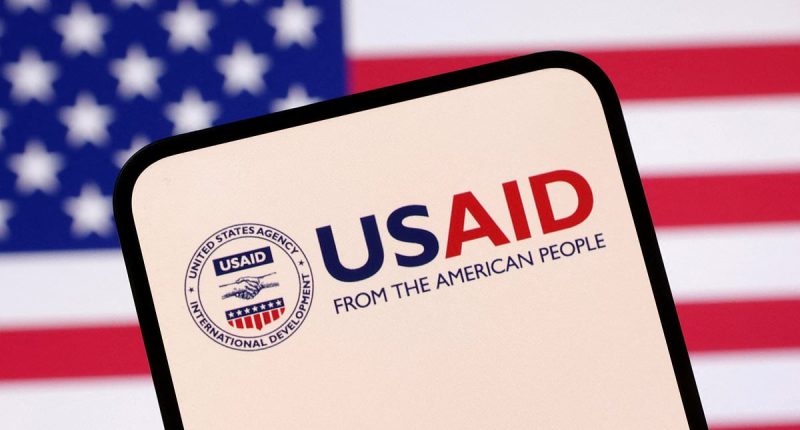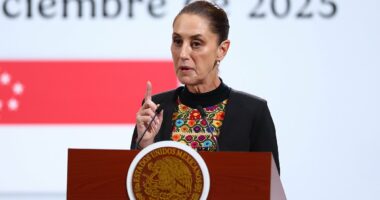Share this @internewscast.com

More than 14 million people could die as a result of Donald Trump’s foreign aid cuts, a new study has found. The US President’s administration announced it had slashed 83 per cent of programmes run by the US Agency for International Development (USAID) shortly after he returned to the White House for a second term.

And now research published in the leading medical journal, Lancet, has predicted that 14 million people – 4.5 million of whom are children under the age of five – could die by 2030 as a result. USAID had provided over 40 per cent of global humanitarian funding until Trump returned to the White House in January.

But two weeks into his second term, Trump’s then-close advisor and former head of the Department of Government Efficiency (DOGE), Elon Musk , announced that they had put the agency ‘through the woodchipper’. US Secretary of State Marco Rubio then revealed the sweeping cuts in March, saying that 5,200 of the 6,200 USAID programmes had been stopped. At the time it was slashed, USAID represented 0.3 percent of all US federal spending. Davide Rasella, who co-authored the study, has now warned that these cuts ‘risk abruptly halting – and even reversing – two decades of progress in health among vulnerable populations’. He added: ‘For many low and middle-income countries, the resulting shock would be comparable in scale to a global pandemic or a major armed conflict.’

Looking at data from 133 nations, the researchers estimated that USAID funding had prevented 91 million deaths in developing countries between 2001 and 2021. They claim that the US’s cuts could lead to around 700,000 child deaths every year. The study found that programmes supported by USAID were linked to a 15 per cent decrease in deaths from all causes. For children under five, the drop in deaths was twice as steep at 32 per cent.

USAID funding was also discovered to be particularly effective at staving off preventable deaths from disease. Furthermore, they found that there were 65 per cent fewer deaths from HIV/AIDS in countries receiving a high level of support compared to those with little or no USAID funding. Deaths from malaria and neglected tropical diseases were similarly cut in half.

After USAID was gutted, several other major donors including Germany, the UK and France followed suit in announcing plans to slash their foreign aid budgets. These aid reductions, particularly in the European Union, could lead to ‘even more additional deaths in the coming years,’ study co-author Caterina Monti of ISGlobal warned. The researchers also emphasised that the grim death projections were based on the current amount of pledged aid. They say this could rapidly decrease if the situation changes.

Dozens of world leaders are meeting in the Spanish city of Seville this week for the biggest aid conference in a decade. However, the US will not attend. Mr Rasella said: ‘Now is the time to scale up, not scale back.’ Study co-author, James Macinko, of the University of California, added: ‘US citizens contribute about 17 cents per day to USAID, around $64 per year. ‘I think most people would support continued USAID funding if they knew just how effective such a small contribution can be to saving millions of lives.’






